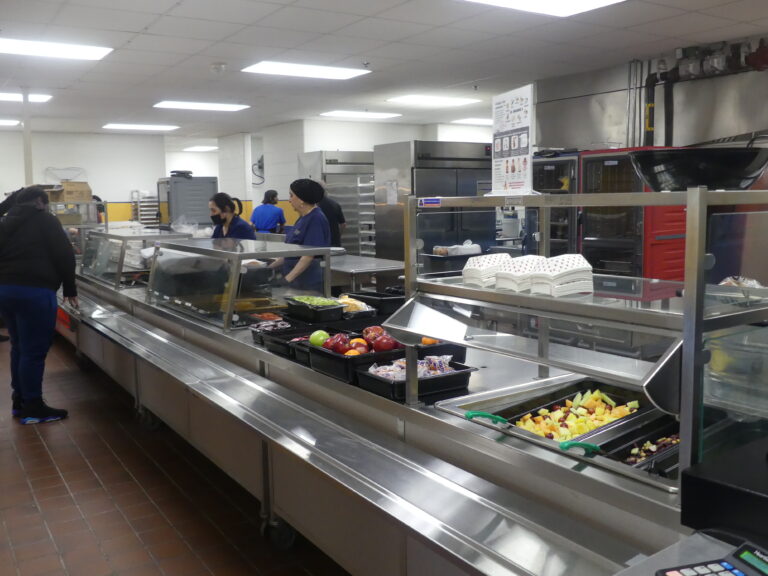By JESSICA LYNN DEPAULA
On Sept. 19, the House of Representatives voted 217-210 to approve a bill that would allow a nearly $40 billion cut to the Supplemental Nutrition Assistance Program (SNAP), which currently grants benefits to 47 million low-income Americans.Two-thirds of those people are women, and nearly half of them are children dependant on programs like these in order to receive basic necessities.
Majority Leader Eric Cantor blasted the outcome of the vote, reportedly saying “it’s wrong for working, middle-class people to pay” for the nation’s unhealthy economy.
The bill, introduced by Frank Lucas (R-OH), would implement stricter requirements that must be met in order to qualify for food stamps, as well as slash waivers granted to able-bodied, unemployed adults with no dependants permanently. The food stamps program currently has a budget of $81 billion; halving the budget for SNAP, like the House has suggested, could be catastrophic for millions of families.
This has left many of the nation’s citizens frustrated and angry at what some are calling a selfish decision by the government. In Lucas’ district alone, roughly 34,000 people currently receive food stamps, with 18,000 of those being children under the age of 18.
Americans have reacted to the proposal with near uniformity, questioning the reasoning behind the bill and producing several other areas of the government that would not suffer as badly with a budget cut. Tumblr blog thesnapvoteproject, dedicated to raising awareness and fighting the bill, has been posting non-stop arguments against cutting the food stamps program.
The reason for the elimination of so much money from SNAP is, in part, due to the “Farm Bill of 2013.” Titled the Agricultural Reform, Food, and Jobs Act of 2013, the Farm Bill is the updated version of the series of legislation that is passed every five years to give strength to America’s agricultural community. One of the few areas in which we flourish as exporters, agriculture is a major issue when it comes to economic discussion, and the Farm Bill proposes that in order to make the nation the most money via food, it must reduce spending on social welfare programs like SNAP.
One of the major arguments made against the food stamps program is that it allows those with lower incomes to live outside of their means. Newark, New Jersey Mayor Cory Bookers combated this misconception by taking on the SNAP Challenge, a pledge to live off of the amount of money allotted by SNAP cards, in December 2012.. The average New Jersey recipient receives $133.26 in food stamps per month.
“People have a real lack of understanding of the struggles that many families have to go through,” he told Newser.com in December 2012. “If I could go back and do it over again, I definitely would have gotten a dozen eggs and I would have clipped coupons.”
A group of Democratic representatives took the SNAP Challenge in June 2013 as a form of protest against the bill, first bringing attention to the proposed funding cuts.
“As finances get worse, the dietary quality also gets worse,” Dr. Deborah Frank, founder and principal investigator of Children’s HealthWatch at the Boston University-affiliated Boston Medical Center, told NBC News in July. It is a commonly known fact that the healthier the food, the more expensive it is; the roughly $4.50 an average SNAP card recipient has to spend on food per day is a contributing factor to a variety of health problems amongst low income families, including diabetes, heart disease and high blood pressure. Why take money away from the program, many argue, when there barely seems to be enough funding to go around as it is?
“There are 21 programs that provide food-purchasing assistance at the federal level. Isolating SNAP is distorting the debate,” Michael Tanner, a senior fellow at the Cato Institute, told NBCNews in July. It is true that there are 13 programs geared towards food assistance listed on Nutrition.gov, but even with those 13 programs, there are still families that will not be eligible for help paying for groceries if SNAP loses a substantial amount of funding.
“I know you probably believe the only true starving people in the world have flies buzzing around their eyes while they wallow away, near-lifeless in gutters,” blogger Jason Kirell wrote in a scathing article entitled, “I’m a 35-Year-Old Veteran on Food Stamps” (via The Huffington Post). “Hate to burst the bubble, but those people don’t live in this country.”




